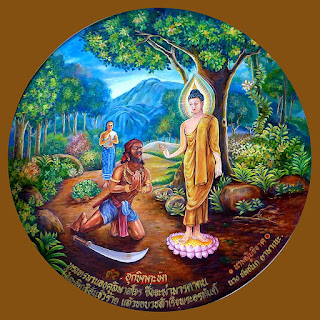We've all been gifted life. It's not important 'how' we received this gift nor is it important from 'whom' we've received this gift. We have it now so what to do with it. Living, in the most basic sense, is easy, one only needs to wake up from sleep, find sustenance, and shelter, and you live. Cats do this. Birds do this. Worms do it too.
But these actions simply keep us alive, perhaps as humans we need, or at least, are capable of more.
In fact we are capable of more which is why we have the ability to experience the conditions of 'liberation', 'dissatisfaction' and 'satisfaction'. As people, most of us transition from dissatisfaction to satisfaction back to dissatisfaction continuously there are even fewer that experience liberation.Let's start with a basic understanding of the terms life, satisfaction, dissatisfaction, and liberation.
Life isn't consciousness. It's not Rene Descartes "I think therefor I am". Life is the body's ability to maintain homeostasis day in and day out. All living beings do this, from humans all the way to the simplest single-celled organism.
Satisfaction and dissatisfactions is the condition of having a need or expectation met or not.
Liberation is ending the cycle of samsara, the continued cycle of rebirth until Nirvana is achieved. And to get there emptiness, signlessness, and aimlessness are the doors that one may walk through. Or put another way emptiness is 'This is because of that'. Signlessness is that the form of an object changes but the 'object' is still there, like water evaporating to vapor, it's still 'water'. While aimlessness means you don’t put anything in front of you as the object of your pursuit.
Ok, liberation sounds like a lot to remember but in essence it's that nothing exists without being formed from the destruction of something else and what we see isn't all that it is.
Aimlessness is what we'll mostly focus on here since our society strives for the accumulation of 'things' and 'status'.
To put it plainly, you will not be satisfied once you achieve what you've set out to acquire or accumulate, at least for very long. Why is that? Because that's not what you're truly looking for.Others have placed the seed inside you that if you're a doctor, lawyer, professor, married, have a fast car, have a big home, travel around the world, and more...that you'll be happy. Society has watered that seed of dissatisfaction with certain ideas, concepts, and notions are necessary to achieve happiness. The Buddha teaches us that to understand we must see through these ideas, concepts, and notions. We let them go.
Some of you reading this probably have achieved some or most of these items. Are you happy? Or are you working on 'the next item'? That next item is not what you're looking for.
Let's see if that's a true statement.
Reflect on whare you are now, at this very moment.
This moment is exactly where you wanted to be yesterday and here you are. You should be happy and content but yet you're striving for more. And when you're striving for more you're living in a future that does not exist all the while forsaking today, the here and now. Because what you're seeking is not what you're looking for.
So, how do you pursue satisfaction?
You don't.
Satisfaction is already within you. You only need to let the condition of dissatisfaction melt away so that satisfaction may be watered and bloom, just like emptiness and signlessness.
Let us know what you think in the comments below.
Wishing you continued peace and wellbeing,
Vladimir
You are warmly invited to follow on us on Facebook and Instagram at @bluelotuscenter for more ways to improve your mindfulness practice and wellbeing.
Blue Lotus Meditation and Mindfulness Center is a registered 501(c)(3) religious organization.
Website and monthly newsletter: www.bluelotusmeditation.us
For guided meditations and Dharma talks, please visit and subscribe to our YouTube channel.










.png)